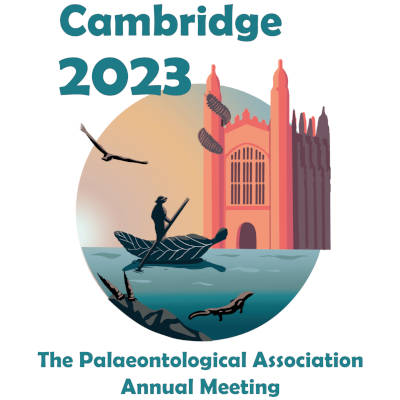The 2023 Symposium will be held on the afternoon of Tuesday 12th September, addressing the topic Ecosystem Engineering through Deep Time. The schedule has been modified from previous years to attract a broader range of current research and researchers. The new format includes six volunteered oral presentations, focusing on how particular groups, habits or evolutionary innovations have (re-)defined physical environments through time. The Symposium schedule is as follows:
Symposium: “Ecosystem engineering through deep time”
Auditorium, West Road Concert Hall, West Road.
Tuesday 12th September
| 13:15 – 13:30 | Welcome address |
|---|---|
| 13:30 – 14:00 | Understanding niche construction as a cause of natural selection Kevin Lala |
| 14:00 – 14:15 | Exploring the macroevolutionary impact of ecosystem engineers using an individual-based eco-evolutionary simulation Luke A. Parry, Thomas J. Smith, Frances S. Dunn, Russell J. Garwood |
| 14:15 – 14:30 | Modern and ancient root-related calcretes: calcium carbonate biomineralisation in the rhizosphere as a soil ecosystem engineering mechanism Adrijan Kosir |
| 14:30 – 15:00 | The deep-time record of bioturbators as ecosystem engineers M. Gabriela Mángano |
| 15:00 – 15:15 | The role of ecosystem engineering in novelty and innovation Douglas H. Erwin |
| 15:15 – 15:45 | Tea/coffee break (Foyer, West Road Concert Hall) |
| 15:45 – 16:15 | Body size evolution as a driver of Phanerozoic nutrient availability Christopher E. Doughty |
| 16:15 – 16:30 | Neoichnology as a lens for studying ecosystem engineering across the Ediacaran-Cambrian transition Katherine A. Turk, Achim Wehrmann, Simon A.F. Darroch, Marc Laflamme |
| 16:30 – 16:45 | The first plants changed the planet and they used mud to do it William J. McMahon, Neil S. Davies, Stefan C. Loehr, Cassandra A. Wheeler |
| 16:45 – 17:15 | Biogeochemical interactions between life and the environment during the Ediacaran Period Graham A. Shields |
| 17:15 – 17:30 | How to engineer a habitable planet: New frameworks for understanding the rise and fall of marine ecosystem engineers through Earth history Alison Cribb, Simon A.F. Darroch, Thomas Ezard |
One of the intentions of the local organisers when changing the Symposium format this year was to attract a broad range of potential Symposium speakers spanning all career stages, and to open up participation in the Symposium to members of groups who have not historically been represented, in line with the Palaeontological Association’s commitment to diversity and inclusion.
17 abstracts were submitted for consideration as Symposium talks. These included a broad range of career stages, including many ECRs, but all lead authors were from institutions in the global north, and only 4 of the 17 lead authors identify as female. The Palaeontological Association therefore recognise that although the new format has succeeded in expanding the range of career stages represented in this year’s symposium, more can be done in future years to encourage engagement from the full spectrum of our palaeontological community. In selecting speakers for the symposium, the local organisers also took into account the fit of the topic being presented to the theme of the symposium.
Please contact Nick Butterfield (njb1005[at]cam.ac.uk) if you have any specific questions relating to the Symposium or the theme issue of Palaeontology.

